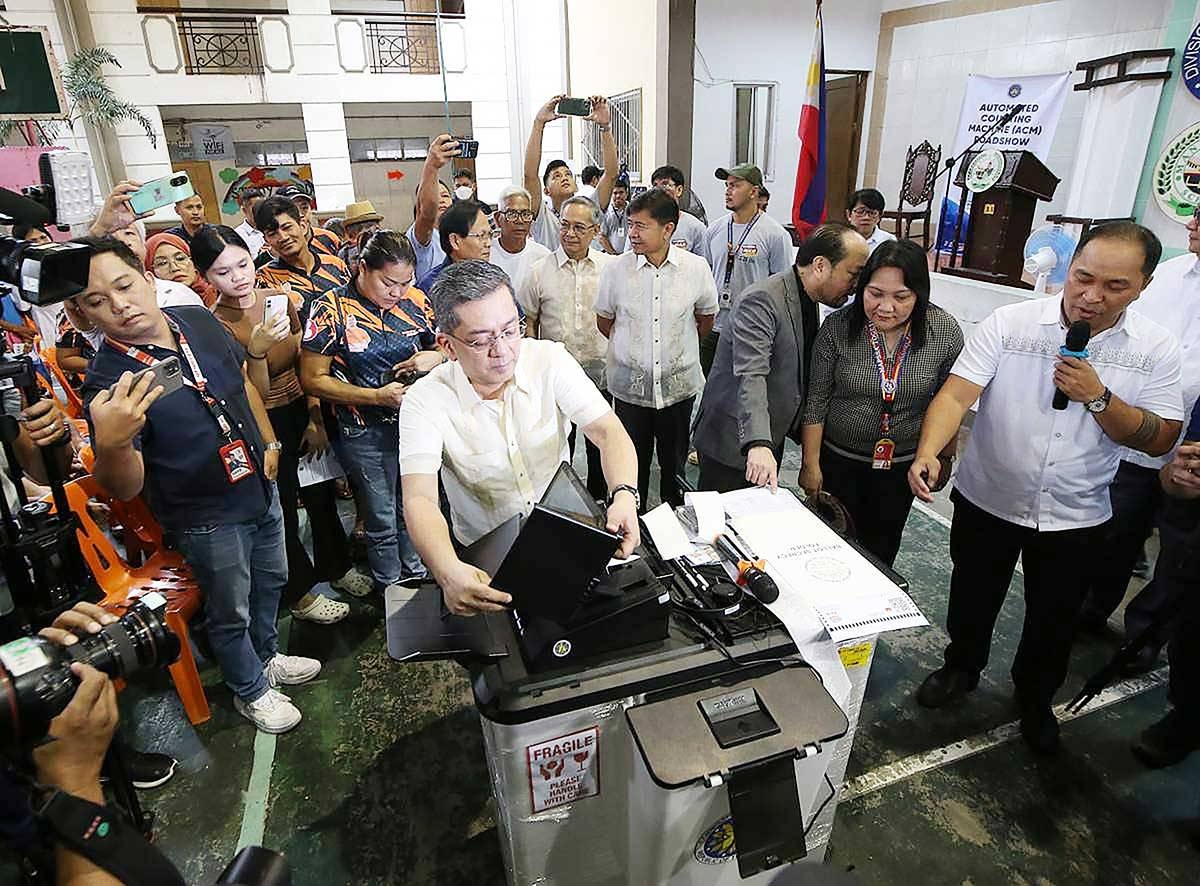(UPDATE) PRESIDENT Ferdinand Marcos Jr. has certified as urgent a measure seeking to postpone the first parliamentary elections in the Bangsamoro Autonomous Region in Muslim Mindanao (BARMM), Malacañang confirmed on Wednesday.
"This is confirmed," acting Presidential Communications Office (PCO) Secretary Cesar Chavez said in a text message to reporters following Senate President Francis Escudero's earlier pronouncement.
Both chambers of Congress recently approved their respective versions of the postponement proposal.
The House of Representatives approved House Bill (HB) 11144, which would move the first regular election in BARMM to the second Monday of May 2026 and every three years thereafter.
Meanwhile, the Senate has approved on second reading a bill that would reschedule the BARMM parliamentary elections from this May to October.
Chavez noted that the chief executive wants the Senate's version of the bill expedited.
Sen. JV Ejercito said he was certain the bill postponing the BARMM elections would be approved on third and final reading by Monday, Feb. 3.
The senator made the assurance as President Ferdinand Marcos Jr. certified as urgent the passage of the measure postponing the BARRM polls.
"[We] already finished it last night on second reading, and it will be ready for third reading by Monday," Ejercito said in a text message.
"The certification is not anymore needed, but it's a message from the Palace of how important the measure is," he said.
A copy of the president's letter was already transmitted to Speaker Martin Romualdez and Secretary Mark Leandro Mendoza, presidential adviser on legislative affairs and head of the Presidential Legislative Liaison Office, Chavez added.
In November 2024, Marcos said they were keenly studying the postponement due to the "unintended consequence" brought by the Supreme Court's decision to exclude Sulu from the BARMM.
On its Sept. 9, 2024 ruling, the Supreme Court upheld the constitutionality of the Bangsamoro Organic Law (BOL) but excluded Sulu from BARMM. It declared the ruling in finality and effective immediately.
"There are seven districts within the BARMM that are in Sulu. Now, they don't have a congressman. They don't have a province. There are also eight without a municipality without a district and without a province. They were all part of BARMM," the president previously noted.
"So the transition authority must work to have a new system, new administrative code, new local government code, and a new electoral code. That's what they need to work on," he added.
Lanao del Sur 1st District Rep. Ziaur-Rahman Alonto Adiong expressed his gratitude to the president for certifying as urgent the bill seeking to reset the first parliamentary elections in the BARMM.
"This certification underscores the national government's commitment to ensuring that the Bangsamoro electoral process is not only democratic but also conducted under conditions that promote stability, inclusivity, and genuine representation," he said in a statement.
"The road to lasting peace and self-governance is not without its challenges, but with this crucial step, we affirm our collective dedication to a peaceful, credible, and successful transition toward a fully functioning parliamentary government in BARMM," he said.
Last Dec. 17, the House of Representatives approved on third and final reading House Bill 11144, under which the first regular election for the Bangsamoro government would be held on May 11, 2026.
While the House bill would reset the elections if passed into law, it would not extend the term of the members of the Bangsamoro Transition Authority (BTA) which acts as a parliament.
"Upon the effectivity of this Act, the term of the present duly constituted Bangsamoro Transition Authority (BTA) in the Bangsamoro Autonomous Region in Muslim Mindanao shall be deemed expired," the House bill reads.
The House bill gives the president the authority to appoint the 80 new interim members of the BTA "who shall serve until their successors shall have been elected and qualified in an automated election."
Also on Wednesday, the Commission on Elections (Comelec) said it has held the printing of ballots for BARMM elections.
"Because of these recent developments, we did not yet proceed with the printing of the BARMM parliamentary ballots," said Comelec Chairman George Erwin Garcia.
"The reason is we may end up opening the filing of candidacy anew for the region in the event of redistricting as a result of the reapportionment of the slots originally assigned in Sulu," he added.
Garcia said the printing of ballots for the national and local elections (NLE) is not affected and would proceed as scheduled.








